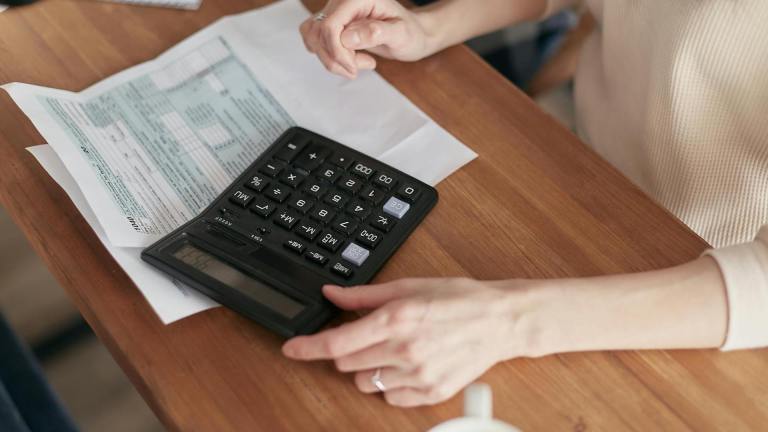What types of benefits are available from the UK government?
Universal credit is paid to people on low incomes, both in and out of work. Instead of a patchwork of means-tested benefits like housing benefit and income-based job seeker’s allowance, universal credit wraps them up into one single monthly payment.
People aged 18 or over who are on a low income or are out of work can apply for universal credit. There is no limit on the number of hours people can work if they are employed and claiming universal credit, however payments will reduce depending on how much is earned. You can also get help paying for childcare through universal credit.
When you’re applying for universal credit, you can ask for a universal credit advance payment too – this is to cover the five-week wait most claimants face for their application to be processed. It functions as a loan, so you’ll have to pay it back out of your monthly payments going forward.
There are a number of unemployment benefits operated by the government beyond universal credit – in some cases you can claim both.
You may be entitled to a discount on your council tax bill, also called a council tax reduction. You can apply whether you are renting or own your own home, and whether you are working or not. A discount on your bill may be offered depending on where you live, how many adults and children live in the house, and the household income. .
Child benefit is available to anyone who is responsible for bringing up a child under the age of 16, or under the age of 20 if they are still in education or training. Only one person can claim the benefit for one child. There are also benefits available for people with disabilities and people with long-term health conditions, as well as carer’s cllowance for people who undertake at least 35 hours of unpaid care work per week.
Advertising helps fund Big Issue’s mission to end poverty
There is also the winter fuel payment available for eligible pensioners. Only older people on pension credit and other means-tested benefits qualify for the winter fuel payment, as of winter 2024, after the government changed the eligibility criteria.
You usually don’t need to apply for the winter fuel payment, as it’ll be paid automatically in the same way as any benefit payments or tax credits you receive. You’ll receive either £200 or £300, depending on when you or your partner were born.
Similarly, the warm home discount is a one-off payment aimed to help people on low incomes heat their homes through winter. This one-off payment – worth £150 – isn’t paid directly to individuals, but instead is a discount which is applied to your electricity bill over the colder months. It will be sent to those eligible between October 2024 and the end of March 2025, this year.
You might decide to apply for a budgeting loan, which is a special type of government support that helps people on certain benefits cover urgent costs. Budgeting loans can help pay for a variety of necessary expenses that can’t be deferred until someone has more money to cover it themselves. You might need money to replace or repair home items like a bed, oven or fridge, cover travel costs, buy maternity supplies or deal with funeral expenses.
The amount you can borrow varies, usually between £100 and £812, depending on your circumstances. Your personal loan amount will depend on things like the size of your family, whether you’re repaying other Department for Work and Pensions (DWP) loans, and your ability to repay. Single people, couples and families with children are all entitled to different maximum loan amounts.
If you claim working tax credit – a means-tested benefit given to people in work who are on low incomes – and you have a child, you can also claim child tax credit. If you have more than one child you can receive it for each, up until some time after their sixteenth birthdays respectively.
Advertising helps fund Big Issue’s mission to end poverty
Older people can qualify for pension credit, on top of their state pension, as well as attendance allowance, which helps cover costs if you’re of pension age and disabled.
There are a number of other benefits available – some ongoing, while others are one-off payments – including personal independence payment (PIP), widowed parent’s allowance, the funeral grant, white goods grant, and support for mortgage interest.
How do I find out what benefits I can claim?
There are a number of different charities and social enterprises designed to help people get the loans, grants and benefits they have a right to access but might not know about.
Use a benefits calculator to see what benefits you are entitled to
There are a number of free benefits calculators available online, which can help give you an idea of which benefits you could claim.
Turn2us benefits calculator
Turn2us has a free benefits calculator where you can check what payments you might qualify for. According to the charity, more than two million people have used the calculator to find information they deserve and need.
More than seven million people are still missing out on an unclaimed £15.1bn of benefits, according to the charity, with 45 per cent of people having never checked what benefits they are eligible for.
Advertising helps fund Big Issue’s mission to end poverty
Those “who goes on to claim the benefits our calculator tells them they are entitled to, receive an average of £5,320 a year. It is so important for people to check. We urge everyone to do a benefit calculation every six months as part of a regular financial health check,” said Sonya Ruparel, director of programmes and partnerships at Turn2us.
Policy in Practice benefits calculator
Policy In Practice is another service which provides a free budgeting and benefits calculator.
Deven Ghelani, director of the social policy software and analytics company, claimed benefits himself and found the system so complex and confusing he missed out on support he was entitled to.
“Many people have suffered financial hardship as a result of the pandemic and have needed the support of the welfare system, perhaps for the first time,” he said.
“That’s why I started Policy in Practice, and built a free benefits calculator to help people understand what support you can claim to get back on your feet.”
Martin Lewis’ Money Saving Expert benefits calculator, created by Entitledto
This is the preferred calculator of money saving expert Martin Lewis, who says the tool takes just ten minutes to find out what you could be due.
Advertising helps fund Big Issue’s mission to end poverty
The free benefits calculator available from Entitledto gives a step-by-step guide through things like tax credits depending on people’s individual circumstances.
Entitledto says: “We believe that everyone living in the UK should be able to understand what their legitimate entitlements are and honestly claim that amount from the government – social security is a key aspect of our society and a vital part of our modern communities.
How do I claim benefits in the UK?
Once you have an idea of which benefits you could qualify for, you can apply for most social security payments online. For universal credit, for example, you need to create an account through the government and complete your claim within 28 days.
If you can’t claim online, you can phone the helpline on 0800 328 5644 for guidance.
The most efficient way to apply for benefits is online, but most have the option of filling in a physical form and applying by post too. The process is slightly different for each benefit.
You’ll usually need to show evidence of your income and any savings you might have, as well as providing your National Insurance number, proof of address and any identification you have.
Advertising helps fund Big Issue’s mission to end poverty
If you’re applying for a disability benefit, expect to have to give evidence from doctors and, in most cases, undergo a DWP assessment.
If you have to send off original documents make sure you keep copies and send them recorded delivery to make sure they arrive safely.
If you’re in need of financial support, or think you’re eligible and need help moving forward with a claim, contact Citizens Advice for free assistance tailored to your circumstances.
Do you have a story to tell or opinions to share about this? Get in touch and tell us more. Big Issue exists to give homeless and marginalised people the opportunity to earn an income. To support our work buy a copy of the magazine or get the app from the App Store or Google Play.










